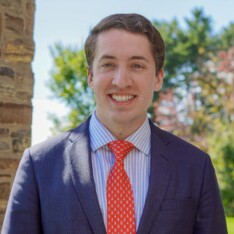When Anthony Fauci announced his retirement, a deluge of fawning coverage about his career immediately appeared in mainstream media outlets. This praise was both expected and deeply disturbing. Yasmeen Abutaleb of the Washington Post described him as the “nation’s preeminent infectious-disease expert who achieved unprecedented fame while enduring withering political attacks.” President Biden joined the chorus, commenting that “His commitment to the work is unwavering, and he does it with an unparalleled spirit, energy, and scientific integrity”.
On the surface, Fauci’s career looks impressive. He is one of the most cited scientists of all time, serving seven Presidents in various roles while working at the National Institute of Allergy and Infectious Diseases, and the National Institute of Health. In 2008, President George W. Bush awarded Dr. Fauci the Presidential Medal of Freedom.
His career, while lengthy, hardly deserves the unmitigated praise it’s currently getting. Instead, it exemplifies the problems that quickly emerge under technocratic rule. Dr. Fauci receives one of the highest salaries ever paid by the Federal Government (reportedly $434,312 in 2020), and commands more authority than any other career bureaucrat in recent memory. We can now purchase everything from Fauci bobbleheads to Fauci prayer candles. Some have even decorated their bodies with Fauci Tattoos. And why not? “I represent science,” he famously said. He believed it, and the US bought it.
That a career bureaucrat would become a phenomenon is one of the most interesting outcomes of the last two years. Since the start of the pandemic, few names are as recognizable to the general public as his.
The Bureaucrat’s Bureaucrat
Dr. Fauci’s career has been one of maximizing budgets and influence for his agencies and himself, all the while handling multiple public health crises with less than stellar outcomes. Economist Gordon Tullock in his book The Politics of Bureaucracy observed that the primary characteristic of a successful bureaucrat is “a desire to rise” and only secondarily does intelligence or competence impact the success of a bureaucrat. This understanding of success within bureaucratic systems is further illustrated by Friedrich Hayek in Chapter 10 of Road to Serfdom, “Why the Worst Get on Top.” While Hayek’s work focuses on tyrannical politicians, the logic clearly applies to government bureaucrats. Indeed Dr. Fauci’s career demonstrates both these realities simultaneously. Far from the neutral expert concerned only with the best outcomes, Dr. Fauci’s career is one of ambition and even “failing upwards.”
Dr. Fauci first rose to public attention in the 1980s during the AIDS crisis. In a 1983 Journal of the American Medical Association article, he speculated that AIDS could be spread through household contact. This resulted in widespread coverage from media outlets, who, citing Fauci’s work, stoked widespread alarm about AIDS transmission while raising his profile significantly. Two months later, Dr. Fauci avoided culpability for promoting the egregious claim by entirely reversing his stance, stating in an interview with the Baltimore Sun, “It is absolutely preposterous to suggest that AIDS can be contracted through normal social contact like being in the same room with someone or sitting on a bus with them. The poor gays have received a very raw deal on this.”
Unfortunately, the social harm from his irresponsible speculation was already done, and his reversed stance only advantaged his own career. His actions during the AIDS epidemic read like a masterclass in ambition and self-preservation.
From the beginning of his career Dr. Fauci has embodied Tullock’s “successful bureaucrat,” gradually rising through the federal bureaucracy while expanding his own influence and that of the agencies he worked for. By the time he became the head of the National Institute of Allergy and Infectious Diseases, his star was formed. Over the rest of his career, despite contributing to a number of public health failures, Dr. Fauci grew into a powerful figure in Washington. Prior to his retirement, he commanded influence over a budget in the tens of billions.
His career came to a head during the COVID-19 pandemic and response. When it was to his and his agency’s advantage, he publicly called for nationwide school closures, lockdowns, forced masking, and vaccine mandates, only to later deflect when concerns were raised by the public and elected officials, stating at a Senate hearing, “everything that I have said has been in support of the CDC guidelines.”
Throughout the COVID-19 pandemic, his contradictions and changing narratives have resulted in confusion and an erosion of confidence in public health. Still, through it all, he has remained at the top of not just his agency but also in influence and public adoration.
Maintaining that influence and adoration led Fauci to declare that he is the embodiment of science itself when questions were raised about his handling of the pandemic. In June 2021, he stated, “Attacks on me, quite frankly, are attacks on science.” in November he doubled down:
But if they get up and aim their bullets at Tony Fauci, well, people can recognize there’s a person there. So it’s easy to criticize, but they’re really criticizing science, because I represent science. That’s dangerous.
And, just when you thought he could go no further, recently, at an award ceremony at the Fred Hutchinson Cancer Center in Seattle, Fauci added that a whole generation of aspiring researchers follow his footsteps, because of “‘the Fauci effect’…people go to medical school and go into science…because I symbolize, integrity, and truth”
If only all of that were true.





